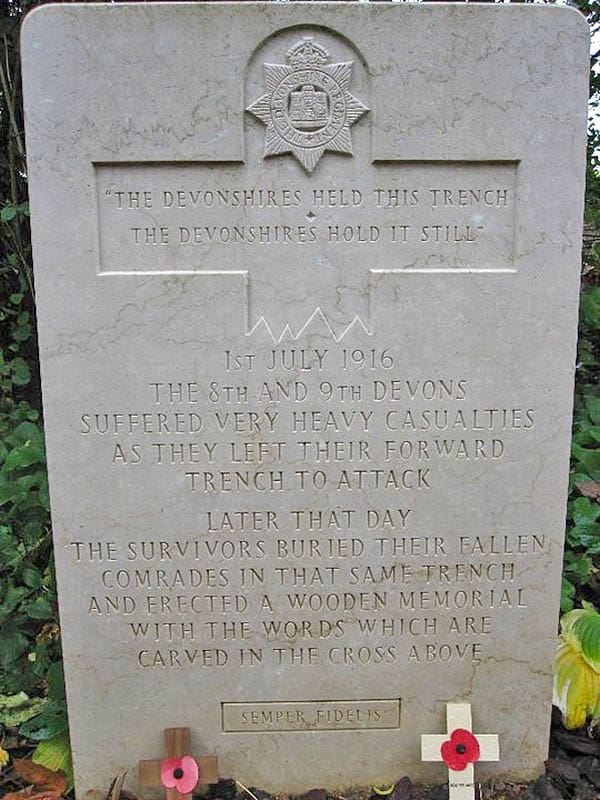Aquaspira were very pleased to be able to assist the Keep Museum in Dorchester in acquiring the Military Cross of Captain John Fergusson, a small but important piece of human history from World War I. Captain Fergusson, from Doncaster, fought with the 2nd Battalion Devonshire Regiment. The Devonshire Regiment raised and maintained an astonishing 18 battalions during the First World War. 6,800 men of the Regiment died during the war (killed, missing, died of wounds or illness). Earlier actions of the Regiment from the Somme in 1916 are commemorated at The Devonshire Trench Cemetery in France, where there is a memorial with the inscription ‘The Devonshires held this trench, The Devonshires hold it still.’ (https://en.wikipedia.org/wiki/Devonshire_Cemetery)
The tragedy for Captain Fergusson is that having survived World War I he was to later take his own life, something that is all too familiar in the construction industry today.
The Chair of Trustees of the Museum, Brigadier (Retd) Richard Toomey CBE DL, said: ‘We are immensely grateful to Aquaspira for this significant donation. We couldn’t have bought these important medals without the company’s help. They represent the brave actions of the Devons fighting against overwhelming odds in 1918.’
”John Fergusson served as an officer in the Devonshire Regiment during the Great War. He was notably awarded the Military Cross for his courageous actions at Bullecourt in 1917. His citation read “‘For conspicuous gallantry and devotion. He led his company, under heavy shelling, to the objective, being left without any officers, but by coolness and courageous example he kept the men well in hand, and greatly assisted in the consolidation of the position’.
Elliot Metcalfe, Director of The Keep Museum

Leading up to the action at Bois Des Buttes, John had proved himself a very capable officer, having taken command of a company in a very short period of time (each battalion was made up of 4 companies, each containing approximately 230 men).
During the action at Bois Des Buttes, it is known that at least two companies of the 2nd Battalion, Devonshire Regiment, were captured by the Germans (due to their speed of attack) in tunnel systems, before they had any chance to fight. The famous stand of the 2nd Devons at Bois Des Buttes was in reality that of the Battalion Headquarters and two companies, one of which was commanded by Captain Fergusson.
During the ferocious three hour attack, John led his men in the determined defence of the position, despite having been shot in the head and shoulder. As the battle drew to its conclusion, John was found wounded by a party of Germans, and taken prisoner. He was instrumental in the famous stand of the 2nd Devons at Bois Des Buttes, and an integral part of our history and identity. By the end of the day, 552 men of the approximate 677 men they had started with were lost, killed or wounded..
The mythological status of the Devons during the battle carries through to the present day regiment, The Rifles. Additionally, the Croix De Guerre, the 2nd Devons, were awarded by France in appreciation for the heroic stand, and is still represented, with the ribbon being worn on the uniform of all members of the regiment (the largest infantry regiment in the British Army).
It is the culmination of the fact that Fergusson is well documented in the battle and how without him, events may have been very different, that make these medals so important to the museum. Captain Fergusson’s story is one of bravery, heroism and the horrors of war. The sacrifice of those who serve is not always physical and research shows after the war he tragically took his own life whilst at work on the 1st of October 1930. The report states that he took his own life ‘during a temporary loss of reason’, although it is strongly suspected that Fergusson was suffering from what we now know as PTSD from his time in the First World War. He was clearly a proud member of the regiment up to his death in 1930 with his headstone in Darlington loyally stating “late 2nd Devon Regiment”.

